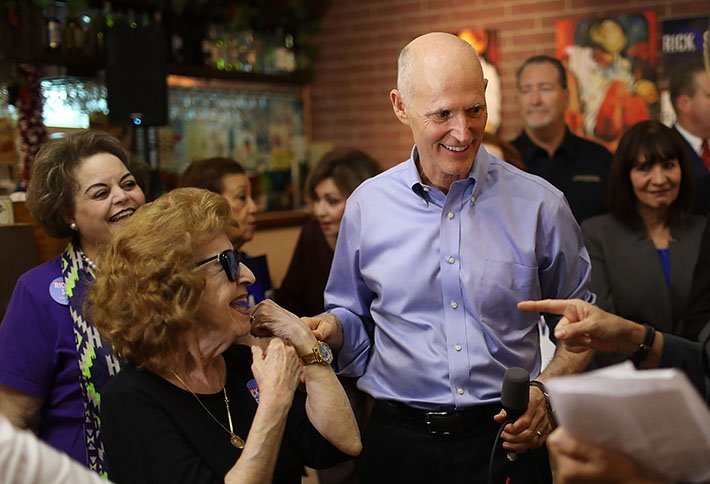As the Senate Republicans struggle to come up with a version of the One Big Beautiful Bill that can be enacted by Congress, they’re essentially turning dials. On the one hand, they have members who are concerned about the overall cost of the bill, and on the other they have members who are concerned about the consequences for their constituents and various industries. One way to adjust for both of these concerns is to play around with when things take effect.
If there’s a cost savings element that is supposed to take effect in 2029, it can be move up a couple years so that the savings come quicker. If there’s a change that will hurt an industry, implementation can be delayed to give businesses some time to plan and adjust. Every turn of the dial will impact the overall projected cost.
The Senate is relying on this strategy in large part because they’re up against the clock and just don’t have time to ditch their main ideas and come up with new ones. It’s easier, or at least seems easier, to just make adjustments to what they already have.
But legislating this way is far from ideal. This can be seen clearly in how the Senate is struggling to Goldilocks their proposal for Medicaid work requirements. The problem began in the House which, desperate to reduce the overall price of the bill, decided to move implementation of the work requirement up from 2029 to the end of 2026. They just turned the dial back three years and voila! they saved a bunch of money.
The Senate doesn’t want to change this but they’re catching holy hell from states and lobbyists.
The requirements, a prominent feature of Republicans’ budget reconciliation bill that passed the House last month, would apply to millions of people who are eligible for Medicaid under the 2010 health care law’s expansion: mainly low-income adults who don’t earn enough money to buy their own insurance or get it through their jobs. The Senate Finance Committee included the same requirements in its version of the proposal released Monday evening.
State Medicaid directors, including those representing red states, have privately told drafters of the legislation that a Dec. 31, 2026, effective date in both versions would be too soon to implement work requirement programs that actually aim to help people rather than kick them off for noncompliance…
…Implementing the requirements would be a huge undertaking for states. They would be responsible not just for checking whether beneficiaries are working or in school but also determining whether people qualify for the multitude of exemptions, as well as informing beneficiaries of changes and designing programs to connect people to educational or employment resources.
In 2018, Arkansas inadvertently and erroneously kicked 18,000 citizens off health care plans when they hastily attempted to implement a work requirement. It’s difficult to verify eligibility and requires a lot of manpower, and the current drafts of the legislation provide a pittance for states to hire and train workers.
Experts have always warned that work requirements could result in coverage losses, including those who are employed but get lost in a bureaucratic maze of government systems. Previous CBO scores have estimated that Medicaid work requirements would not increase employment but would increase coverage losses. But the speedy time frame for implementation could compound those issues.
One problem here is simple carelessness. Republican legislators are too rushed and desperate to turn the dials for them to calibrate practical policy. The other problem is ideological. The main driving force behind their desire to enact a work requirement is their hatred of giving anyone a benefit they don’t feel they deserve. That mindset overwhelms and concern that the policy “actually aim to help people rather than kick them off for noncompliance.”
Now, as mentioned above, the Congressional Budget Office estimates that the work requirement will succeed in kicking people of their coverage, but fail at reducing unemployment. This doesn’t appear to bother Republican lawmakers, which is telling. It’s not inevitable that a work requirement will fail to produce more work, but to improve the outlook they would have to add money for “designing programs to connect people to educational or employment resources.” In other words, they could turn the dial up in those areas. But they won’t do this because their goal has never been to help people in need but rather to punish folks for perceived laziness.
Something similar is happening with another part of the Medicaid portion of the bill. The Republicans want to make changes in how Medicaid expansion states can tax health care providers, but these changes are projected to devastate rural hospitals, causing a reduction in services and outright closures.
Leadership is attempting to balance directives to cut government spending with demands from senators like Josh Hawley, R-Mo., who said that the bill should protect rural hospitals from the effects of shrinking provider taxes.
“The right thing to do is not defund rural hospitals to pay for your pet projects,” Hawley said. “So if you want your pet project in the bill, go find your own money. Don’t defund rural hospitals.”
Here the goal is not just to find cost savings but to kick people of their Obamacare plans. This desire overrides protecting their own constituents. Quite clearly, rural Americans heavily favor the Republican Party but stand to take the brunt of damage from this policy change. In a desperate effort to solve this dilemma, Sen. Rick Scott of Florida wants to turn the dials this way:
Sen. Rick Scott, R-Fla., floated a two-tier solution that would decrease the federal government’s share of spending on the Medicaid expansion population and establish a rainy-day fund for some hospitals. The Centers for Medicare and Medicaid Services could tap into the fund at its discretion to bolster rural, teaching and other vulnerable hospitals.
Scott said the federal match for Medicaid expansion enrollees could be phased down over two years, after which states would get the same match rate as traditional Medicaid states for new expansion enrollees. The federal government pays about 90 percent of the costs for Medicaid expansion, and a minimum of 50 percent of the costs for traditional enrollees, though the percentage varies by state.
As I’ve mentioned before, reducing the federal match for Medicaid below 90 percent “is a way of kicking people off Medicaid indirectly by forcing state governors to do the dirty work.” There are also at least 12 states that would automatically revoke their participation in the Medicaid expansion if the federal government reduces the match below a certain threshold. At Sen. Scott’s proposed 50 percent match, all 12 states would drop these Obamacare plans.
The resulting loss of Medicaid payments would be offset by a rainy day fund aimed primarily at subsidizing failing rural hospitals. This money wouldn’t provide anyone with health coverage but simply compensate hospitals for treating the uninsured or for the lost business of not treating ill people at all. The only way such a policy makes sense is if the goal is to go to any length regardless of consequences to ensure no one gets a benefit that they might not “deserve.”
So, the Republicans will continue to adjust their dials, seeking the not-too-hot and not-too-cold sweet spot where they can corral the votes they need for the One Big Beautiful Bill, but they will do it with a thoughtlessness and malice that ensures bad outcomes for most Americans, and especially for their supporters.







